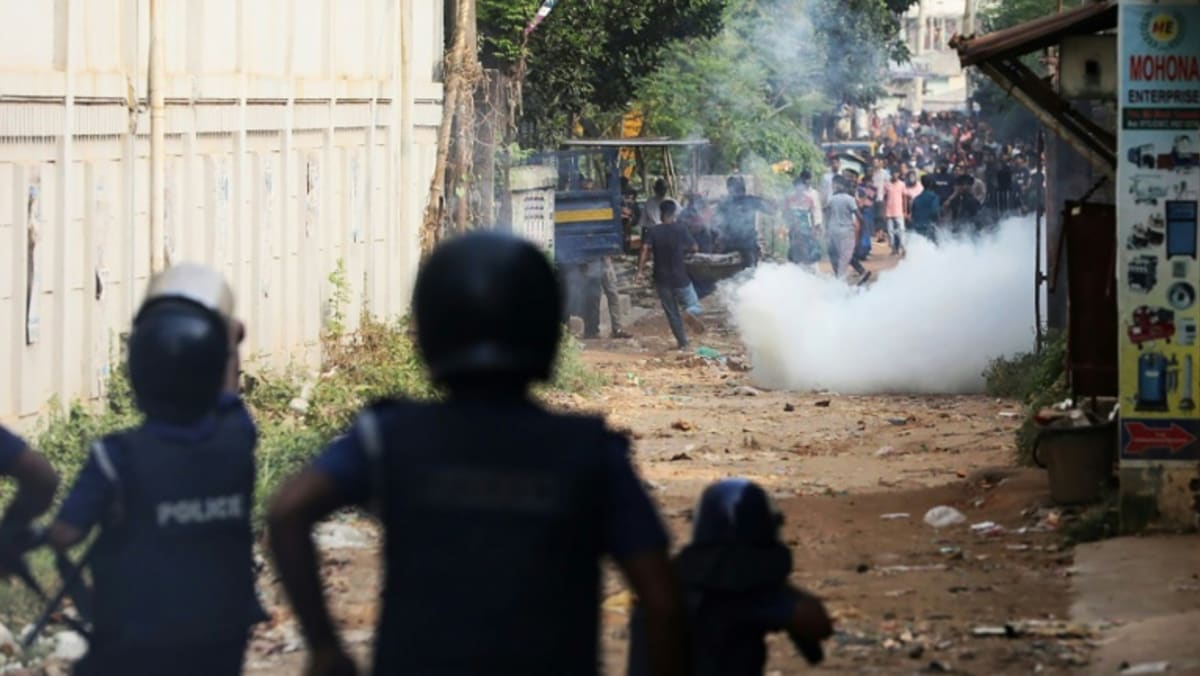DHAKA: Striking Bangladesh garment workers clashed with police on Saturday (Nov 4) near the capital as factories reopened in defiance of a protest campaign demanding a near-tripling of wages.
Bangladesh’s 3,500 garment factories account for around 85 per cent of the South Asian country’s US$55 billion annual exports, supplying many of the world’s top names in fashion including Levi’s, Zara and H&M.
But conditions are dire for many of the sector’s four million workers, the vast majority of whom are women whose monthly wages start at 8,300 taka (US$75).
Police said some 600 businesses shuttered over the week had reopened in areas worst-hit by the strike, which saw some factories ransacked and set alight.
But clashes broke out in the industrial town of Ashulia, west of the capital Dhaka, after around 10,000 workers attempted to prevent their colleagues from returning to their shifts.
“They hurled stones and bricks at officers and factories and tried to block roads,” Ashulia police chief Mohammad Sarowar Alam told AFP.
“We dispersed them by firing tear gas,” he said, adding that 1,500 security forces personnel had been deployed there and in nearby Savar to keep order.
A 35-year-old woman was critically injured when police fired rubber bullets and tear gas at hundreds of protesters at Sreepur, some 60km north of Dhaka, police inspector Ibrahim Khalil told AFP.
Imran Khan, the woman’s nephew, told AFP she had been struck by rubber bullets on the face three times.
Workers also returned to their shifts after a week of violent protests in Gazipur, an industrial neighbourhood on Dhaka’s northern outskirts.
“Authorities have assured us they will hike our wages within one week. That’s why we returned to the factories,” garment worker Rokon Uzzaman told AFP.
“We don’t have any savings. How long can we continue the protest if we can’t feed our families?” he added.


